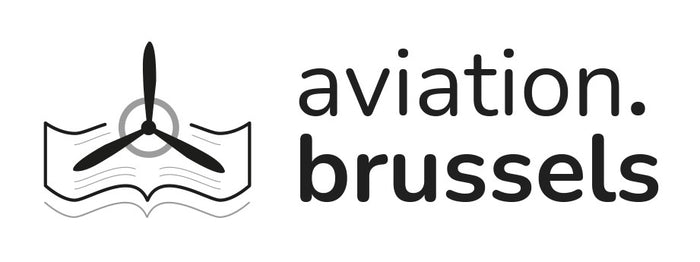MILES AIRCRAFT - The post-War Years













Prix régulier 170,00 € TTC 6%
Characteristics
| Book cover finish | Hardcover ( rounded spine binding ) |
| Special features | Dust jacket, Original edition ( O.E. or Or.E ) |
| Condition | Used very good |
| Number of pages | 448 |
| Published date | 2016 |
| Languages | English |
| Collection / Series | The Miles Aircraft Collection |
| Size | 22 x 30.5 x 3 cm |
| Author | Peter AMOS |
| Editor | Air-Britain Publishing |
Description
Miles Aircraft - The Post-War Years 1945 to 1948 is the third volume of the history of Miles Aircraft and takes the story through to the end of the company with the devastating involvement of Samuel Rolleston Hogg.
Following on from the successful wartime years with the Miles brothers continuing to come up with radical answers to post-war needs (too few of which were actually adopted by the powers that be), the Company suffered from austerity and from production difficulties brought about by power failures and work force management. Ever optimistic, FG and his brother George, were nonetheless determined and worked hard to overcome the whole range of problems facing them. And these could probably have been resolved were it not for the perhaps deliberate and perverse negativity of their financial adviser who would appear to have taken personal advantage of the difficult times for his own ends - and which required the destruction of the company built up over twenty years. The author sets out in graphic detail the almost Shakespearean tragedy that occurred and which even led to criminal charges against the brothers - resulting in a trial which led to them being found entirely innocent of all such charges.
In common with the earlier volumes, this book also looks in detail at the aircraft that were built in the post-war years and the various projects that were not, with comprehensive histories of each individual aircraft together with a variety of other appendices and documents.
ABOUT THE MILES AIRCRAFT COLLECTION
The Miles Aircraft Collection was formed in 1993 to encourage the preservation of Miles aircraft, to collect and catalogue related archives, artifacts and memorabilia and to assist Miles air- craft restorers, owners and would-be owners worldwide with technical advice and spares. It actively supports the Museum of Berkshire Aviation at Woodley and publishes Miles Magazine twice-yearly.
ABOUT THE AUTHOR
Peter Amos was born in Redhill, Surrey in 1930 and, on leaving technical college, worked as personal assistant to the Chief Engineer of East Surrey Gas Works before National Service intervened in 1949. Joining REME as a draughtsman, much of his 18 months was spent with the SRDE at Christchurch. Here, his future career was determined - aviation proving a bigger draw than gas - and it was within the aviation industry that he spent most of his (paid) working life.
Joining de Havillands in their Regent Street drawing office, he helped to 'productionise' the DH Heron before going to Tiltman Langley Laboratories at Redhill Aerodrome where, as a design draughtsman, he worked on projects for Supermarine, Avro and Saunders-Roe - for the latter becoming responsible for the design and installation of the transmission test-rig for the Skeeter.
He then moved to Hamble, first with Armstrong Whitworth and then with Hawker Siddeley, where he later joined the flight development department at Chilbolton, before moving to Dunsfold on the Folland Gnat Trainer and then the P.1127 (née Harrier). Following the cutbacks and cancellations in the British aviation industry, Peter finally left it in the mid- 1970s to become a self-employed freelancer, latterly specialising in aviation insurance for museums and restoration groups.
His lifetime interest in most aspects of aviation, culminated in him becoming the recognised 'guru' on Miles Aircraft. His one big regret is never having the opportunity of working for Miles. Though he never aspired to a pilot's licence, in the 1950s Peter did learn to fly, initially on the DH Moth Minor but later the Miles Magister, soloing on both. Lack of time and money and the more pressing need to earn a living and raise a family conspired against this ambition. But, as he says, 'it was all very enjoyable'.













